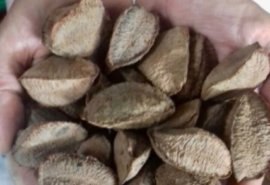Understanding Plant Blindness: Why It Matters and How can we address It




Plants are fundamental to life on earth, acting as the bridge between the physical and biological worlds by harnessing solar energy.
Despite this, people often under appreciate plants compared to animals. This phenomenon, known as plant blindness, is the inability to notice plants or recognize their vital role in sustaining life. First coined in 1998 by botanists James Wandersee and Elizabeth Schussler, plant blindness extends to a lack of appreciation for the unique aesthetic and biological features of plants, as well as the belief that plants are inferior to animals, leading to misconceptions about their importance.
The Causes of Plant Blindness
Wandersee and Schussler attribute plant blindness primarily to the human visual processing system. While our eyes capture millions of bits of data every second, our brains filter and process only a small fraction of it. Human brains prioritize movement, vibrant colors, and known or potentially threatening objects—all characteristics associated more with animals than with plants, which are static and tend to blend into their environment. Additionally, social and educational biases contribute to plant blindness. Many educators favor animals over plants when teaching biological concepts, reinforcing this bias from a young age.
The Consequences of Plant Blindness: A case for the Amazon rainforest
Plant blindness has serious implications. Public apathy toward plants means less support for plant conservation, even if one in eight plants species faces extinction. Nowhere is this more concerning than in regions like the Amazon rainforest, which hosts an estimated 10% of known species on earth and plays a critical role in regulating the global climate by absorbing large amounts of CO₂. However, deforestation and plant blindness contribute to the loss of this vital ecosystem. In the Amazon, deforestation not only threatens unique plants species but also disrupts Indigenous communities and the vast biodiversity that depends on this environment. As plant life diminishes, the forest’s ability to store carbon and support climate regulation is compromised, further exacerbating global warming.
Plant blindness through education
To combat plant blindness, Wandersee and Schussler launched the “Prevent Plant Blindness” campaign. They created educational resources, like a poster emphasizing the significance of plants and a children’s book, Lost Plant!, to spark curiosity about plants among young readers. They also encourage “plant mentorship,” advocating for role models who can introduce children to the joys of growing and studying plants. Botanical gardens play a significant role in this effort by offering interactive and educational experiences.
In conclusion, plant blindness requires both awareness and education. Through engaging teaching methods and a shift in societal perspectives, we can foster a greater appreciation for plants, ensuring they receive the attention and conservation efforts they deserve, especially in areas like the Amazon rainforest where conservation is critical for global health.
The Jauaperi Reserve, where the Xixuau Amazon Ecolodge is located, is a remarkable region of biodiversity, home to a wide variety of ecosystems that support an incredible array of plant and animal life. Its rich soil and favorable climate provide the perfect environment for a stunning collection of flowers, ranging from vibrant wildflowers to rare and exotic species. These blooms not only enhance the natural beauty of the area but also play a crucial role in supporting pollinators like bees and butterflies, contributing to the ecological balance of the region.
Related Posts
-
-
Travelling solo can be one of the most exciting, liberating ...Feb 13, 2020 / 0 comments
-
Due to the pandemic, our ecolodge is not operating at the m...Sep 25, 2021 / 0 comments
-
Do Amazonian houses have electricity? What about running wat...Jul 29, 2021 / 0 comments
Contact us
Xixuaú Amazon Ecolodge
69373-000 – RR, Brasil






Sorry, the comment form is closed at this time.